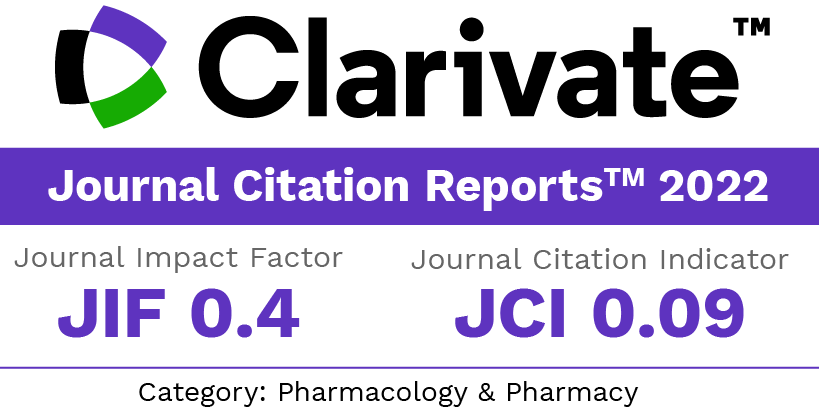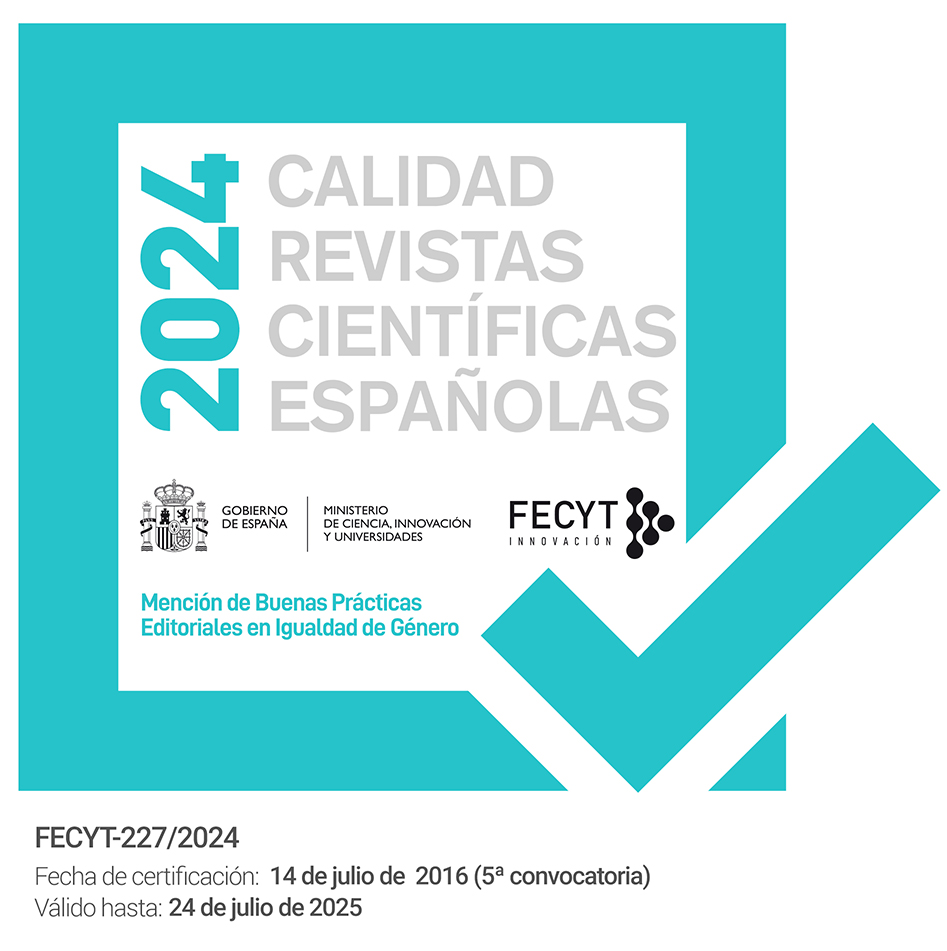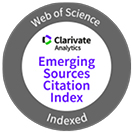Therapy compliance, patient knowledge of medicines and self-medication as associated factors in negative clinical outcomes in pharmacotherapy
Keywords:
Negative outcomes in pharmacotherapy, Therapy compliance, Self-medicationAbstract
The patient plays a fundamental role in the attainment of good results in pharmacotherapy. Noncompliance,self-medication, or insufficient knowledge of the therapy being employed may provide asource for the causes of these negative clinical outcomes, otherwise known as medicine related problems(MRP). he Dader method was used in the evaluation, identification and classification of MRP. Theassociation of variables was established through the statistical Chi square test. Patient knowledge of themedicine, degree of compliance to therapy and self-medication were studied as causes of the negativeoutcomes encountered. 2556 patients were interviewed throughout the year that the study took place,giving a total of 2261 of valid cases. 33% presented an MRP as the cause of his/her visit to the hospitalemergency ward. Knowledge of the medicine, compliance and self-medication were only studied in thepopulation that presented an MRP and in this work it is demonstrated that these are aspects that areassociated with different dimensions of MRP. It is not possible to establish an association between theexistence or not of negative clinical outcomes in patients with the factors of knowledge of medication,compliance and self-medication. This is due to the fact that these variables are not attributable to thepatient himself, but rather are associated with the characteristics of each medicine.Downloads
References
Fernández-Llimós F, Faus MJ. Importance of medicine-related problems as risk factors. Lancet 2003; 362:1239
Consensus committee. Second consensus of Granada on drug therapy problems. Ars Pharm 2002; 43: 175-184.
Raschetti R, Morgutti M, Menniti-Ippolito F, Belisari A, Rossignoli A, Longhini P, La Guidara C. Suspected adverse drug events requiring emergency department visits or hospital admissions. Eur J Clin Pharmacol 1999; 54: 959-963.
Tafreshi MJ, Melby MJ, Kaback KR, Nord TC. Medication-related visits to the emergency department: a prospective study. Ann Pharmacother 1999; 33: 1252-57.
Lesar TS, Briceland L, Stein DS. Factors related to errors in medication prescribing. JAMA 1997; 277:312-317
Otero MJ, Bajo A, Maderuelo JA Domínguez-Gil A. Evitabilidad de los acontecimientos adversos inducidos por medicamentos detectados en un servicio de urgencias. Rev Clín Esp 1999; 199: 796-805.
Tuneu L, García-Peláez M, López S, Serra G, Alba G, de Irala C, et al. Problemas relacionados con los medicamentos en pacientes que visitan un servicio de urgencias. Pharm Care Esp 2000; 2(3): 177-192.
Guemes M, Sanz E, García M. Adverse reactions and other drug-relared problems in a emergency service departmen. Rev Esp Salud Pública 1999; 73 (4): 512-18.
Barbero JA et al. Detección y resolución de problemas relacionados con los medicamentos en la farmacia comunitaria: una aproximación. Pharm Care Esp 1999;1:113-122
Martínez-Romero F, Fernández-Llimós F, Gastelurrutia MA, Parras M, Faus MJ. Programa Dáder de Seguimiento del Tratamiento Farmacológico. Resultados de la fase piloto. Ars Pharm 2001; 42(1): 53-65.
Triller DM, Clause SL, Briceland LL, Hamilton RA: Resolution of drug-related problems in home care patients through a pharmacy referral service. Am J Health Syst Pharm 2003;60(9):905-10.
Bates DW, Cullen DJ, Laird N, Petersen L, et al. Incidence of adverse drug events and potencial adverse drug events. Implications for prevention. JAMA 1995; 274 (1): 29-34.
Seeger JD, Xiaodong Kong S, Schumock GT. Characteristics associated with ability to prevent adverse drug reactions in hospital patients. Pharmacotherapy 1998; 18(6): 1284-9.
Gandhi TK, Weingart SN, Borus J, et al. Adverse drug events in ambulatory care. N Engl J Med 2003; 348:1556-64
Wiffen PJ, et al. Adverse drug reactions in hospital patients; a systematic review of the prospective studies. Bandolier Extra, June 2002. www/jrz.ox.ac.uk/bandolier/extra.html.
Hafner JW, Belknap SM, Squillante MD, Bucheit KA. Adverse drug events in emergency department patients. Ann Emerg Med 2002, 39: 258-67
Patel P, Zed PJ. Drug-related visits to the emergency department: how big is the problem?. Pharmacotherapy 2002; 22: 915-23
Barris D, Faus MJ. Iniciación a la metodología Dáder de seguimiento farmacoterapéutico en una farmacia comunitaria.
Ars Pharm 2003; 44(3):225-37.
Baena MI, Fajardo P, Luque FM, Marín R, Arcos A, Zarzuelo A, Jiménez J, Faus MJ. Problemas relacionados con los
medicamentos en usuarios de un servicio de urgencias hospitalario: resultados de la validación de un cuestionario. Pharm Care Esp 2001; 3: 345-57.
Gurwitz JH, Field TS, Harrold LR, Rothschild J, Debellis K, Seger AC, et al. Incidence and preventability of adverse drug events among older persons in the ambularoty setting. JAMA 2003; 289(9): 1107-16
Baena MI. Problemas relacionados con los medicamentos como causa de consulta en el servicio de urgencias del Hospital
Universitario Virgen de las Nieves de Granada. Madrid: Ergon; 2004.
Prince BS, Goetz CM, Rihn TL, Olsky M. Drug-related emergency department visits and hospital admissions. Am J Hosp Pharm 1992; 49: 1696-700.
Dennehy CE, Kishi DT, Louie C. Drug-related illness in emergency department patients. Am J Health-Syst Pharm 1996; 53: 1422-6.
Nelson KM, Talbert RL. Drug-related hospital admissions. Pharmacotherapy 1996; 16(4): 701-7
Major S, Bard S, Bahlawan L, et al. Drug-related hospitalization at a tertiary teaching center in Lebanon: incidence, associations and relation to self-medicating behavior. Clin Pharmacol Ther 1998; 64(4): 450-61.
Gonzalez J, Orero A, Prieto J. Evaluación del cumplimiento terapéutico y estrategias para mejorarlo. JANO 1997; 53:709-14.
Basterra M. Cumplimiento Terapéutico. Pharm Care Esp 1999; 1:97-106.
Centro Andaluz de Informción de Medicamentos (CADIME). Automedicación: riesgos y beneficios. Boletín Terapéutico
Andaluz 1996; 12 (5): 1-5.
Baena MI, Calleja MA, Romero JM, Vargas J, Jimenez J, Faus MJ. The validation of a questionnarie for the identification of problems arising from the use of medicines by patients at a hospital emergency ward. Ars Pharm 2001; 42:147-71
Fernández-Llimós F, Martínez-Romero F, Faus MJ. Problemas relacionados con la medicación. Conceptos y sistemática de clasificación. Pharm Care Esp 1999; 1: 278-88.
Fernández-Llimós F, Faus MJ, Gastelurrutia MA, Baena MI, Tuneu L, Martínez Martínez F. Identificación sistemática de resultados clínicos negativos de la farmacoterapia. Seguim Farmacoter 2004; 2(3): 195-205.
Shah, BV., Barnwell, BG., and Bieler, GS (1997). SUDAAN User’s Manual, Release 7.5, Research Triangle Park, NC: Research Triangle Institute.
Medina MA, Puche E, Luna J de D. Factores asociados con la presentación de reacciones adversas a medicamentos en pacientes que acuden al servicio de urgencia de un hospital general: estudio de casos y controles. Aten Primaria 2000; 26(1): 42-4.
Martín MT, Codina C, Tuset M, et al. Problemas relacionados con la medicación como causa del ingreso hospitalario. Med Clin 2002; 118(6):205-10
Malthotra S, Jain S, Pandhi P,. Drug related visits to the medical emergency department: a prospective study from India.. Int J Clin Pharmacol Ther 2001; 39(1):12-8
Smith KM, McAdams JW, Frenia HL, Todd MW. Drug-related problems in emergency department patients. Am J Health-Syst Pharm 1997; 54(3): 295-8
Simmons C, Georgeson EM, Hill RC. Adverse Drug Reactions: Can we reduce the risk? Hospital Pharmacy 1998; 33: 1568-76.
Downloads
Published
How to Cite
Issue
Section
License
The articles, which are published in this journal, are subject to the following terms in relation to the rights of patrimonial or exploitation:
- The authors will keep their copyright and guarantee to the journal the right of first publication of their work, which will be distributed with a Creative Commons BY-NC-SA 4.0 license that allows third parties to reuse the work whenever its author, quote the original source and do not make commercial use of it.
b. The authors may adopt other non-exclusive licensing agreements for the distribution of the published version of the work (e.g., deposit it in an institutional telematic file or publish it in a monographic volume) provided that the original source of its publication is indicated.
c. Authors are allowed and advised to disseminate their work through the Internet (e.g. in institutional repositories or on their website) before and during the submission process, which can produce interesting exchanges and increase citations of the published work. (See The effect of open access).


















